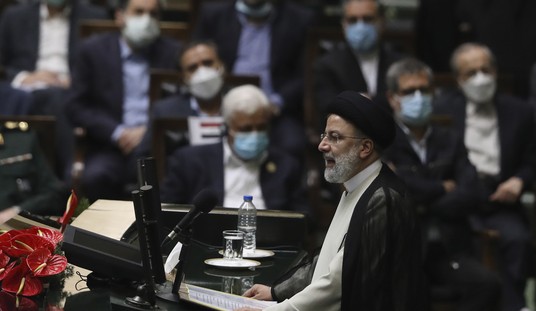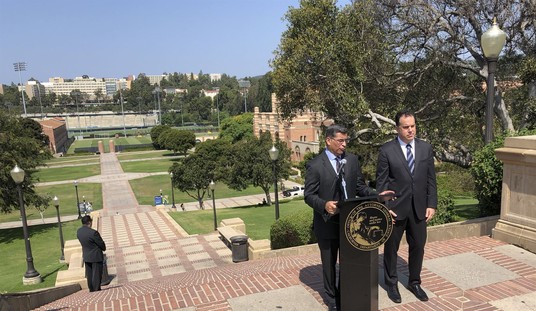Somehow I missed this yesterday. You’d think it’d be bigger news when the chairman of the Federal Reserve tells Congress that he’ll stay on the job whether the executive likes it or not.
Especially when he’s doing it on TV, in response to a question from Trump nemesis Maxine Waters.
I mean, is this guy *trying* to get fired? He’s waving a red cape before the big orange bull here.
“I have the right to demote him. I have the right to fire him,” Trump said of Powell a few weeks ago, still annoyed that the Fed won’t slash interest rates to further goose the economy. Demotion seems to be the first option on his menu at the moment; Bloomberg reported last month that Trump was exploring stripping Powell of his chairmanship and leaving him as a plain ol’ Fed governor. But let’s say he did want to pull the trap door. Could he fire Powell under the law?
Answer: Depends. The Federal Reserve Act says that each Fed governor gets to serve 14 years “unless sooner removed for cause by the President.” What does “for cause” mean? The courts have never had to address the question but it probably doesn’t mean “because the Fed won’t do what the president wants it to do on monetary policy.” The point of the Act is to give the Fed a modicum of independence from politics. Letting the president fire the chairman “for cause” because, essentially, it’s behaving independently would wreck the whole scheme.
But back up. Is the Federal Reserve Act constitutional — or at least this part of it, purporting to limit the president’s authority to fire its officers? My gut reaction is no. Aside from the special case of federal judges, who operate under Article III and are assured life tenure so that they feel free to rule fairly in all cases, it’s difficult to imagine a rationale for letting an *unelected* policy-making federal officer serve with no accountability to anyone. Of course Powell can be removed summarily — or so it seems to me instinctively. The New-Deal-era Supreme Court decided differently, though, ruling in 1935 that laws limiting the president’s power to remove top personnel at independent agencies like the FTC are constitutional. That’s because independent agencies are quasi-legislative and quasi-judicial, the Court said, whatever the hell that means. But this is what Powell is banking on if Trump drops the axe. He’ll ignore him, go to court, and point to the Humphrey’s Executor case from 1935 as a slam-dunk winner for him. Unless Trump can show “cause,” he loses. Simple as that.
We’ll see, though. Conservative legal thinkers have developed a powerful allergy to the idea of “independent” agencies and agents over the last few decades. There may no single judicial opinion in the past 40 years that’s influenced conservative constitutional thinking as much as Scalia’s dissent in Morrison v. Olson, the “independent counsel” case that featured frequently in constitutional commentary about the Mueller probe. Scalia’s point there was that the president is supreme in his constitutional sphere; as a matter of basic accountability, one can’t have an executive officer who’s so “independent” from the president that he can’t be removed. On top of that, the Roberts Court has been eyeing the sprawl of the administrative state over the last few years and making unhappy noises, with Roberts’s own recent opinion in the census citizenship question case delivering a new blow to agency independence. The conservative majority won’t like the idea of an agency head like the Fed chairman being able to tell the president to piss off if Trump wants to remove him. If Trump and Powell forced them to decide whether Humphrey’s Executor is still good law, which way would they go?








Join the conversation as a VIP Member